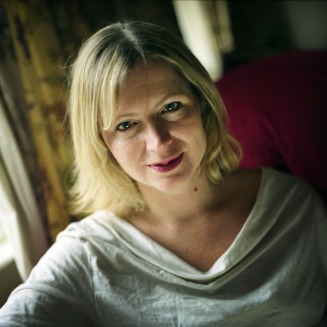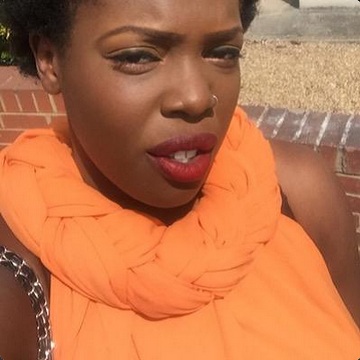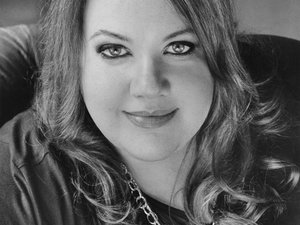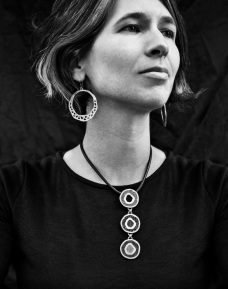In the media is a fortnightly round-up of features written by, about or containing female writers that have appeared during the previous fortnight and I think are insightful, interesting and/or thought provoking. Linking to them is not necessarily a sign that I agree with everything that’s said but it’s definitely an indication that they’ve made me think. I’m using the term ‘media’ to include social media, so links to blog posts as well as as traditional media are likely and the categories used are a guide, not definitives.
I’ve been a bit lax at compiling these while I’ve focused on my own work. It means this month’s is huge and I haven’t honed in on any topic in particular as the news moves so fast at that moment it feels like an impossible task. Back to fortnightly after this which hopefully will make it slightly easier to digest.

On or about books/writers/language:
- Helen Dunmore, ‘Facing mortality and what we leave behind‘ in The Guardian
- Rosalind Jana, ‘Making Space: A Brief History of Literary Salons, Past and Present‘ on Constellation
- George Saunders, ‘Grace Paley, the Saint of Seeing‘ in The New Yorker
- Peternelle van Arsdale, ‘How I Learned to Stop Worrying About the Market and Just Write‘ on Literary Hub
- Lauren Elkin, ‘Flâneuse: Women Walk the City in Paris, New York, Tokyo, Venice, and London‘ on Longreads
- Varaidzo, ‘From school books to publishing, black girls deserve better representation‘ in the New Statesman
- Ruth Gilligan, ‘Write Like a Girl‘ on Read it Forward
- Francesca Simon, ‘Why I’m writing for World Book Day’ in The Guardian
- Lily Dunn and Zoe Gilbert, ‘We’re given only a handful of these kinds of friendships‘ on Something Rhymed
- Karolina Ramqvist, ‘Writer as Public Figure Vs. The Writer Who Actually Writes‘ on Literary Hub
- Catherine Mayer, ‘on Writing Attack of the Fifty Foot Women‘ on Waterstones Blog
- Yoojin Grace Wuertz, ‘Failure and Patience: Lessons from the Garden for Writers‘ on Literary Hub
- Claudia Roth Pierpoint, ‘Elizabeth Bishop’s Art of Losing‘ in The New Yorker
- Thomas Arnow, ‘Who was Harriette Arnow?‘ on the Penguin Blog
- Anjali Enjeti, ‘The Life and Legacy of Bharati Mukherjee‘ on Literary Hub
- Wei Ming Kam, ‘On the Carnegie, Bookshops and Melinda Lo’s Ash‘ on Gal-dem
- Kerry Clare, ‘Rereading Fear of Flying: On Not Being Pregnant in Mid-Air With Isadora Wing‘ in The Toronto Review of Books
- Susan Hill, ‘Can I be a serious writer, keeping such casual hours?’ in The Guardian
- Nell Zink, ‘Writing for Rejection, And reading Doris Lessing‘ on n+1
- Craig Hubert, ‘On the Many Film Adaptations of the “Unfilmable” Wuthering Heights‘ on Literary Hub
- Ilana Masad, ‘Queer children’s books have a long history that’s only now being told‘ in The Guardian
- Heather O’Neill, ‘Leaving It All on the Page‘ on The Walrus
- Cameron Glover, ‘A Soulful Novel and Me: On Zora Neale Hurston‘ on Catapult
- Maggie Harcourt, ‘Pages in Common‘ on Waterstones Blog
- Rebecca Traister, ‘Rereading The Handmaid’s Tale, One Month Into the Trump Era‘ in The Cut
- Julie Buntin, ‘On Making Things Up: Some True Stories About Writing My Novel‘ on Catapult
- Sarah Perry, ‘In praise of readability‘ in The TLS
- Joanna Cannon, ‘The Story Behind The Trouble with Goats and Sheep‘ on WHSmith Blog
- Lionel Shriver, ‘Dystopia in the next room‘ in The TLS
- Rafia Zakaria, ‘Carson McCullers at 100: a century of American suffering‘ in The Guardian
- Jo Hogan, ‘The Carnegie Medal: Time for a Review‘ on her blog
- Salamisha Tillet, ‘Free Is and Free Ain’t‘ on Public Books
- Morgan Jerkins, ‘The Forgotten Work of Jessie Redmond Fauset‘ in The New Yorker
- Emma Garman, ‘Trilby, the Novel That Gave Us ‘Svengali’‘ on Longreads
- Emily Cooke, ‘Pay to Play: A chronicle of wealth and class in the literary world‘ on Book Forum
- Aminatta Forna, ‘We must take back our stories and reverse the gaze‘ in The Guardian
- Sam Jones, ‘Retrieving an untold story: voices of Spanish female artists finally heard‘ in The Guardian
- Ulka Anjaria, ‘The Goddess of Loss‘ on Boston Review
- Dr. Florence Hazrat, ‘From The Taming of the Shrew to 10 Things I Hate About you: Taming Wild Women in European Culture‘ on Women Are Boring
- Laura Pritchett, ‘The Middle Ages‘ on Bloom
- Fiona Cummins, ‘How I went from Ms Showbiz reporting on celebrity parties to writing a chilling crime thriller‘ in the Daily Mirror
- Katy Waldman, ‘Is My Novel Offensive?‘ on Slate
- Tracy Chevalier, ‘There’s a febrile debate in Trump’s rustbelt. I want to be part of it‘ in The Guardian
- Sarah Ladipo Manyika, ‘What Virginia Woolf Forgot To Say‘ on Thrive Global
- Georgia Hunter, ‘We Were The Lucky Ones‘ on Waterstones Blog
- Rowan Hisayo Buchanan, ‘A Dyslexic’s Guide to Infinity‘ on The Rumpus
- Maria Russo, ‘Finding America, Both Red and Blue, in the ‘Little House’ Books‘ in The New York Times
- Miranda Emmerson, ‘Mixed-up thinking‘ on Bookanista
- Marta Bausells, ‘Warsan Shire and Beyoncé: Superheroes for Our Time‘ on Literary Hub
- Lisa Williamson, ‘Writing NON-romantic Love for Teens‘ on Foyles
- Alex Clark, ‘I’m no pussy when it comes to swearing‘ in The Guardian
- Rahawa Haile, ‘How Black Books Lit My Way Along The Appalachian Trail‘ on Buzzfeed
- Kate Mosse, ‘It’s never been more important to champion women’s voices‘ on The Pool
- Eva Dolan, ‘The Hierarchy of Victims in Crime Writing‘ on Foyles
- Roxane Gay, ‘The Full Text of ‘Bad Feminist’ Author Roxane Gay’s WI12 Speech‘ on Publishers Weekly
- Claire Fuller, ‘on the Isle of Purbeck, Dorset‘ on The Literary Sofa
- Scott Eposito, ‘Understanding America Through Marilynne Robinson‘ on Literary Hub
- Edwidge Danticat, ‘Poetry in a Time of Protest‘ in The New Yorker
- Laura Pritchett, ‘The Great West Has More Than One Story to Tell‘ on Literary Hub
- Sarah Churchwell, ‘‘It will be called Americanism’: the US writers who imagined a fascist future‘ in The Guardian
- Lucinda Rosenfeld, ‘What Was Chick Lit? A Brief History from the Inside‘ on Literary Hub
- Ela Bittencourt, ‘Poetry Thieves: Translating Hanna Krall and Ewa Lipska‘ on Words Without Borders

Personal essays/memoir:
- Rowan Hisayo Buchanan, ‘How Postcards from My Mother Helped Me Survive My Childhood‘ on Literary Hub
- Leah Carroll, ‘My Mother’s Murder‘ on The Cut
- Melissa Febos, ‘When Pursuing True Love Means Breaking Up With Your Best Friend‘ on Refinery29
- Catherine LaSota, ‘Changing Body, Changing Perceptions‘ on Catapult
- Anne Kniggendorf, ‘Gracie Allen and John Denver in Boot Camp‘ on Electric Literature
- Christine Hyung-Oak Lee, ‘Saving Chickens, Saving Myself‘ on Catapult
- Arianna Rebolini, ‘Learning to Cook After Relearning to Eat‘ on Catapult
- Gwen Werner, ‘Daddy Issues‘ on The Rumpus
- Clover Stroud, ‘Travelling alone as a woman was a way of owning my trauma‘ on The Pool
- Lynn Enright, ‘I don’t always know who I am – but that’s OK ‘ on The Pool
- Karen Brown, ‘From Imbibing Spirits to Spiritualist Mediums‘ on Literary Hub
- Erin Corber, ‘Vocabulary Lessons in Bucharest‘ on The Rumpus
- Elisa Gabbert ‘My Grandmother’s Little Room and the Unreality of Memory‘ on Pacific Standard
- Kaitlyn Greenidge, ‘Sacred Space: On visiting the National Museum of African American History and Culture, and facing the present‘ on Lenny
- Claire Handscombe, ‘Dance: On Ballet and Impossible Love‘ on Catapult
- Melissa Febos, ‘Reconciliation‘ on Lenny
- Sara Yasin, ‘Muslims Shouldn’t Have To Be “Good” To Be Granted Human Rights‘ on Buzzfeed
- Jowita Bydlowska, ‘Nobody Died‘ on Lenny
- Cass Cross, ‘The Men in My Office‘ on Catapult
- Sophie Warnes, ‘On the unbearableness of existence‘ on Medium
- Megan Margulis, ‘My Daughter’s Suburban Childhood Looks Nothing Like My Urban One‘ on The Cut
- Jessica Grose, ‘The Wait‘ on Lenny
- Marie Phillips, ‘One woman’s attempt to learn the language of love‘ on The Pool
- Allison Grimaldi-Donahue, ‘Translation Beyond Metaphor‘ on Electric Literature
- Sara Noviç, ‘When Good Christian Girls Need Planned Parenthood‘ on The Cut
- Rachel Klein, ‘Losing My Voice and Finding It‘ on Catapult
- Amna Saleem, ‘This Is What I Learned From My Father’s Depression‘ on Buzzfeed
- Lara Williams, ‘Talk to Me Baby‘ on Some Such Stories
- Eleanor Margolis, ‘From unnerving normality to toilet humour: the stages of my mum’s cancer diagnosis‘ in the New Statesman
- Rebecca Varkoe, ‘Let’s Talk About The Immense Privilege (And Struggle) Of Doing What You Love‘ on Junkee
- Patricia Lockwood, ‘A Childhood in the Pro-Life Movement‘ in The New Yorker
- Lorraine Berry, ‘Walking in Memphis‘ on Catapult
- Kathryn Schultz, ‘When Things Go Missing‘ in The New Yorker
- Irina Dumitrescu, ‘Swan, Late‘ on Longreads
- So Sad Today, ‘What if I Never Live My Best Life?‘ on Vice
- Lacy M. Johnson, ‘Trigger‘ in Guernica
- Candice Norwood, ‘When ‘Good Hair’ Hurts‘ in The Atlantic
- Lisa Mecham, ‘Under the Stars: Remaking a Family‘ on Catapult
- Christine Hyung-Oak Lee, ‘What It’s Like to Lose Your Short-Term Memory‘ on Longreads
- Andie Park, ‘Lessons‘ on Medium
- Laine Bruzek, ‘What Happens When Nothing Happens‘ on West Magazine
- Elle Nash, ‘Grief Lozenge‘ on The Fanzine
- Kim Schultz, ‘I fell in love with a refugee – here’s what I learned when the world didn’t love him too‘ on the New Statesman
- Rebecca Schuman, ‘Hello, Lenin? (Berlin, 1997)‘ on Longreads
- Alana Massey, ‘The Rotten, Precious Land‘ on Hazlitt
- Jonatha Kottler, ‘Fat in Every Language‘ in The Cut
- Alexandra Burt, ‘What Remains When Your First Language Fades Away‘ on Literary Hub
- Jen Gann, ‘I Love My Ugly Old Hands‘ on The Cut
- Melissa Febos, ‘Wunderkammer‘ in Vogue
- Bonnie Nadzam, ‘Experts in the Field‘ on Tin House
- Imbolo Mbue, ‘‘With every inch, the challenge multiplies’: me and my afro‘ in The Guardian
- Yemisi Aribisala, ‘People try to squeeze Nigerian food into an all-encompassing African label‘ in The Guardian
- Eileen Myles, ‘Aging Is Feminizing Me and I Hate It‘ in The Cut
- Stacey Dugid, ‘The skirt that gave me back my mojo‘ on The Pool
- Laurie Frankel, ‘When my son became my daughter, the transition was more routine than dramatic‘ in The Sydney Morning Herald
- Jaya Saxena, ‘Explaining My Multiracial Identity (So Others Don’t Do It For Me)‘ on Catapult
- Catherine LaSota, ‘Becoming an Artist and a Parent in NYC‘ on Catapult
- Cat Marnell, ‘How to Murder Your Life‘ on The Cut
- Kayla Rae Whitaker, ‘How I Learned To Date After Drinking‘ on Buzzfeed
- Jia Tolentino, ‘The Most American Thing‘ in The New Yorker
- Kuba Shand Baptiste, ‘It took me 17 years to fall in love with my black hair. Why?‘ on The Pool
- Eva Tenuto, ‘Feeling Unsafe at Every Size‘ on Longreads
- Lori Jakiela, ‘A Portrait of the Artist as a Bingo Worker‘ on Electric Literature
- Patricia Bosworth, ‘The Men in My Life‘ on Literary Hub
- Meghan Tear Plummer, ‘Real Life: My Sister, My Brother‘ in Glamour
- Tracy O’Neill, ‘A Scar Is Not a Story‘ on Catapult
- Laila Lalami, ‘Love and Betrayal in America‘ in The New Yorker

Feminism:
- Dayna Tortorici, ‘While the Iron Is Hot‘ in n+1
- Michelle Darmody, ‘From the heart: One woman’s experience of abortion‘ in the Irish Examiner
- Riyan Fergins, ‘Follow the Oil Trail and You’ll Find the Girls‘ on Longreads
- Anita Bhagwandas, ‘The true meaning of beauty is to celebrate our imperfections‘ on The Pool
- Tobi Oredin, ‘As a black woman, I’ve had to unlearn what beauty means to me‘ on The Pool
- Jennilie Brewster, ‘Frozen Ground: On Reporting a Statutory Rape Twenty Years Later‘ on Catapult
- Zoe Samudsi, ‘Remy, Nicki, And The White Feminist Optics Of Black Women’s Beefs‘ on Equality for Her
- Katie Booth, ‘People Mountain, People Sea‘ on Vela
- Deborah Orr, ‘Helen Bailey and the lethal darkness behind this ‘middle-aged woman’ myth‘ in The Guardian
- Carmen Maria Machado, ‘The Trash Heap Has Spoken‘ on Guernica
- E.J. Dickson, ‘Why Did Everyone Act Like I Was Crazy When I Decided to Have a Baby in My 20s?‘ in The Cut
- Jendella Benson, ‘Feminist love will save men too‘ on Media Diversified
- Eve Ensler, ‘Female Fighters Series Re-examines Women’s Rage Around the World‘ on Guernica
- Abbie, ‘It’s Time to Trash Body Positivity‘ on Bullshitist
- Nimmi Gowrinathan, ‘Of Monsters & Women‘ on Guernica
- Yas Necati, ‘As a queer woman I will be marching against Donald Trump this weekend – but for my disabled friends it won’t be that easy‘ in The Independent
- Jessica Valenti, ‘Calling pregnant women ‘hosts’? We’re in an anti-choice Republican dystopia‘ in The Guardian
- Suzanne Moore, ‘Women in public life are now being openly bullied. How has this become normal?‘ in The Guardian
- Jessa Crispin, ‘The Failures of Mainstream Feminism‘ on New Republic
- Sara Ahmed, ‘Smile!‘ on Feminist Killjoys
- Shannon Keating, ‘Can Lesbian Identity Survive The Gender Revolution?‘ on Buzzfeed
- Melissa Denes, ‘‘It’s always high drama. It’s somebody’s life at stake’: inside British rape trials‘ in The Guardian
- Megan Nolan, ‘If British abortion providers turn away Irish women, it will be catastrophic‘ in The Pool
- Glosswitch, ‘What Would Happen if the World’s Women Went on Strike?‘ in the New Statesman
- Andrea Penman-Lomeli, ‘Consuming la Malinche, Destroying the Myth‘ on The New Inquiry
- Jia Tolentino, ‘The Case Against Contemporary Feminism‘ in The New Yorker
- Nadine Ajaka, ‘The Casualties of Women’s War on Body Hair‘ in The Atlantic
- Amanda Hess, ‘How a Fractious Women’s Movement Came to Lead the Left‘ in The New York Times
- Naomi Alderman, ‘Utopian thinking: how to build a truly feminist society‘ in The Guardian
- Rebecca Traister, ‘The Future of the Left Is Female‘ in The Cut
- Sadie Hassler, ‘Three abortions‘ on Standard Issue
- Caroline O’Donoghue, ‘I may never be ready to stop saying “dude”‘ on The Pool

Society and Politics:
- Dana Snitzky, ‘The Ban, The Wall, Bearing Witness‘ on Longreads
- Hannah Black, ‘New World Disorder‘ on Art Forum
- Gaby Hinsliff, ‘The government can’t pledge support for mental illness – and then backtrack‘ on The Pool
- Elizabeth Weil, ‘The Curse of the Bahia Emerald‘ on Wired
- Claire Heuchan, ‘The parallels between Scottish nationalism and racism are clear‘ in The Guardian
- Tasbeeh Herwees, ‘Resistance In The Time Of Protest Selfies‘ on Good
- Teow Lim Goh, ‘On Borders and Citizens‘ on Catapult
- Gaby Hinsliff, ‘Labour can’t keep returning to its roots empty handed‘ in The Guardian
- Mehreen Kasana, ‘The Meaning of Allahu Akbar‘ on Hazlitt
- Rumana Ahmed, ‘I Was a Muslim in Trump’s White House‘ on The Atlantic
- Gabrielle Bellot, ‘M*lo Might Be Done, But His Transphobia Lingers‘ on Literary Hub
- Sarah Larson, ‘The Librarian of Congress and the Greatness of Humility‘ in The New Yorker
- Rachel Cusk, ‘The Age of Rudeness‘ in The New York Times
- Gaby Hinsliff, ‘We are overdosing on empathy‘ in The Guardian
- Arifa Akbar, ‘The value we place on romantic love can feel tyrannical – especially if you’re a single woman‘ on The Pool
- Suzanne Moore, ‘It’s liking, not loving, that’s the true challenge in relationships‘ on The Pool
- Diane Abbott, ‘I fought racism and misogyny to become an MP. The fight is getting harder‘ in The Guardian
- Elizabeth Day, ‘What does true love really look like?‘ on The Pool
- Ruth Whippman, ‘Authentic? Try being polite instead‘ in The Guardian
- Deborah Cohen, ‘Before Straight and Gay‘ on The Atlantic
- Lizzie Presser, ‘Below Deck‘ in The California Sunday Magazine
- Tari Ngangura, ‘How Black History Month Reminds Me How Exhausting It Is To Be Black‘ on Vice
- Caitlin L. Chandler, ‘The Other World‘ on Guernica
- Helen Haft, ‘Telling Memories‘ on Aeon
- Andrea Pitzer, ‘Trump Revives a Shameful Tradition: Targeting a Minority Group with Crime Reports‘ on Longreads
- Ijeoma Oluo, ‘White People: I Don’t Want You To Understand Me Better, I Want You To Understand Yourselves‘ on The Establishment
- Lois Parshley, ‘Here Be Dragons: Finding the Blank Spaces in a Well-Mapped World‘ on VQR
- Hina Shamsi, ‘Flying Home From Abroad, a Border Agent Stopped and Questioned Me … About My Work for the ACLU‘ on ACLU
- Tina Nguyen, ‘Trump Grill Could Be the Worst Restaurant in America‘ in Vanity Fair
- Tamara Winfrey Harris, ‘The Real Work of Being an Ally‘ on The Cut
- Nesrine Malik, ‘Suddenly, Muslims are America’s pariahs‘ in The Guardian
- Margaret Simons, ‘The Karen road to Nhill‘ on SBS
- Fariah Roísín, ‘What Makes a Border Be?‘ on Hazlitt

Film, Television, Music, Art, Fashion and Sport:
- Anna Leszkiewicz, ‘From Hannah Horvath to Rory Gilmore: the problem with women writers on TV‘ in the New Statesman
- Eva Holland, ‘Bird Man‘ on Longreads
- Lynn Enright, ‘Twentysomething women often win Best Actress. Men in their twenties basically never win Best Actor‘ on The Pool
- Brittney Cooper, ‘Why It’s Important to Recognize That “Moonlight” Was Robbed Of Its Moment‘ in Cosmopolitan
- Jia Tolentino, ‘The Awkward Politics of the Oscars‘ in The New Yorker
- Megan Garber, ‘Why Are They ‘Stars’?‘ on The Atlantic
- Jess Goldschmidt, ‘Against La La Land‘ on Guernica
- Ann Powers, ‘The Problem With The Grammys Is Not A Problem We Can Fix‘ on NPR
- Helen O’Hara, ‘TV is better placed to tell love stories than cinema – and its writers have finally realised that‘ on The Pool
- Frances Ryan, ‘I, Daniel Blake is a realistic depiction of life on benefits. Isn’t it?‘ in The Guardian
- Emma Gray, ‘What White Women Can Learn From Adele’s Grammys Speech‘ on the Huffington Post
- Anindita Ghose, ‘What John Berger would say about Beyoncé‘ on Live Mint
- Hadley Freeman, ‘Oh, how I loved you, Johnny Depp. Now I see the purple-tinted truth‘ in The Guardian
- Laura Craik, ‘Why do we judge Victoria Beckham by her husband?‘ on The Pool
- Micha Frazer-Carroll, ‘Why We Should Celebrate Beyoncé’s Pregnancy in the Era of Trump‘ on Gal-Dem
- Danielle Dash, ‘Beyonce, Black Joy & White Women‘ on her website
- Jennifer Keshin Armstrong, ‘The Mary Tyler Moore Show’s Feminist Struggle‘ on Longreads
- Dayna Evans, ‘Why Would a Woman Want to Play Football?‘ on The Cut
- Véronique Hyland, ‘Why Won’t We Let Madonna Age the Way She Wants To?‘ on The Cut

The interviews/profiles:
- Susan Hill in The Guardian
- Cara Hoffman on Broadly
- Rowan Hisayo Buchanan on Literary Hub
- Kate Zambreno on The Creative Independent
- Yoojin Grace Wuertz on Electric Literature
- Melissa Febos on Guernica
- Masha Gessen on The Millions
- Zeba Talkhani and Laura Waddell on Minor Literature[s]
- Patty Yumi Cottrell in the Los Angeles Review of Books
- Ayòbámi Adébáyò in The Guardian
- Claudia Rankine in The Financial Times
- Claire Fuller in The Chicago Review of Books
- Ethel Rohan on The Millions and on Bustle
- Yiyun Li in The Guardian, on Five Books
- Jane Wong and Aditi Machado on Literary Hub
- Roxane Gay on Brooklyn
- Emily Ruskovich on Electric Literature
- Roshi Fernando on Short Story Award
- Jess Phillips on The Debrief
- Morgan Parker in The Cut
- Liane Moriarty in The Guardian
- Dreda Say Mitchell on Greenacre Writers
- Sara Baume in The Guardian
- Ola Nubi on Ankara Press
- Shappi Khorsandi in The Guardian
- Heather O’Neill on The Millions
- Rachel Cusk in BOMB
- Nina LaCour on The Booklist Reader
- Emma Donoghue on Literary Hub
- Ayelet Waldman in California
- Alice Broadway on Foyles, in The Guardian
- Amanda Owen in The Guardian
- Chimamanda Ngozi Adichie in The Guardian
- Margaret Atwood in The Guardian
- Ali Smith in The New York Times
- Lara Pawson on Rhys Tranter
- Christine Hyung-Oak Lee on NPR
- Jade Sharma in The Rumpus
- Alana Massey on Hello Giggles, Hazlitt
- Khairani Barokka on Disability Arts
- Adrian Shirk on Catapult
- Katie Kitamura on Literary Hub
- Camille Pagán in the Huffington Post
- Adania Shiboli on Literary Hub
- Naomi Jackson on The Rumpus
- Katie Khan on In the Words of
- Kyo Maclear on Mcleans
- Kim Hyesoon on Guernica
- Jessica Valenti on The Rumpus
- Elif Shafak in The Guardian, on Foyles
- Erica Ferencik on Electric Literature
- Eimear McBride on Electric Literature
- Sandra Cisneros on Literary Hub
- Shanthi Sekaran on Bookanista
- Ottessa Moshfegh on Lenny

The regular columnists:
- Lucy Mangan in Stylist
- Roxane Gay in The Guardian US
- Caitlin Moran in The Times
- Lauren Laverne in The Pool
- Ella Risbridger in The Pool
- Sali Hughes in The Pool
- Bim Adewunmi in The Guardian
- Sophie Heawood in The Guardian
- Eva Wiseman in The Observer
- Tracey Thorn in The New Statesman
- Chimene Suleyman and Maya Goodfellow on Media Diversified
- Josie Pickens on Ebony
- Bridget Christie in The Guardian
- Lizzy Kremer on Publishing for Humans
- Juno Dawson in Glamour
- Kashana Cauley on Catapult
- Louise O’Neill in the Irish Examiner
- Jendella Benson on Media Diversified
- Lola Okolosie in The Guardian
- Sarah Gerard, ‘Mouthful‘ on Hazlitt
- Books by Women We’d Love to See in English on Literary Hub
































































